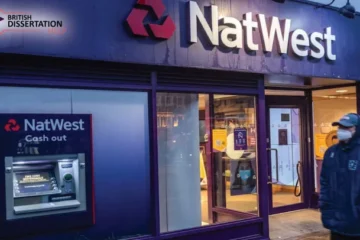Why choosing the Right Crypto wallet is essential to keep your coins safe and how to choose one
Are you overwhelmed by the number of Crypto wallets out there and cannot decide which one to choose? Tired of the jargon of wallet types around the web and want to know if you even need one? Say no more. This guide will come to your rescue. Here is all you need to know about cryptocurrency wallets to begin choosing the right one for you.
What is a Cryptocurrency Wallet?
A cryptocurrency wallet is but a place to store your digital currency.
Crypto resides in a giant blockchain network instead of directly staying within your wallet. The wallet only stores information about your public and private keys. Using these keys, you can send or receive cryptocurrency while keeping your private key encrypted.
- A public key is like your bank account number. You can share it with other people or institutions, so they can send money to you or take money from your account as per your authorization. These people usually view your public keys as a wallet address — a hashed, or more compressed, version of that public key.
- A private key is like the PIN to your debit card. You shall never share it at any cost.
Do You Need a Wallet?
Many crypto exchanges allow customers to store cryptocurrency within a wallet on their facility. So why do you need extra storage when you can stash your crypto in any crypto exchange?
So what is wrong with keeping your crypto within the wallet that an exchange like Coinbase or Binance provides?
Tyrone Ross, financial advisor and CEO of Onramp Invest, a crypto investment platform for financial assistance or advisors, has some words of wisdom for you. He says that you can keep your coins at Coinbase or Gemini or elsewhere until you have a solid understanding of public and private keys, hot and cold storage and other crypto security-related issues. However, these exchanges are an attractive target for hackers and prone to frequent security breaches and hacks. So one should gradually move to a reputed wallet for storage needs.
Types of Crypto Wallets
Different crypto storage options serve various purposes, depending on what you plan to do with your crypto. Long-term Bitcoin investors often opt for added security of an offline cold storage wallet. Those who prefer speedy transactions go for the hot wallet.
To not complicate things, we will not discuss the Paper wallet and Web-based wallet.
- Hardware Wallet or Cold Wallet
These are called cold wallets or cold storage, and they store your keys completely offline on a device with no internet connection. Hardware wallets resemble a USB drive. Sometimes paper wallets are even used as cold storage wherein you print your wallet’s information onto a sheet of paper as a QR. Because they are offline, the cold wallets are very complex to crack. However, losing a device can lead to financial loss. Experts recommend buying a device directly from the manufacturer. Do not ever buy compromised second-hand wallets. Providers include :
- Trezor
- Ledger Nano
- Software Wallet or Hot Wallet
A hot wallet stores crypto on the web with a trusted provider using any software like an app on mobile or desktop. Any trading exchange will offer a free bitcoin hot wallet where your purchases are automatically stored. But users prefer to transfer and store their crypto with a third-party hot wallet provider because these exchanges are prone to security breaches.
Many exchanges and online wallets suffered from security breaches in the past. Such services generally do not provide enough insurance to cover one-off cases of unauthorized access.
Consider these popular hot wallet providers –
- Coinbase
- Electrum
- Mycelium
- Exodus
The Difference?
With a hot wallet, transactions are generally faster. A cold wallet takes additional security steps that help to keep your assets safe. This extra effort takes a longer transaction time than hot wallets.
Now the choice is between speed and security.
Final Thoughts
Wallets are not enough to keep your crypto secure. You need to take active security measures for your account. These are some protips to follow:
- Update your wallet software frequently.
- Opt into two-factor authentication for your wallet.
- Do not share your private key with anyone.
- Maintain strong passwords that you update regularly.
- Never use the same password for multiple accounts.



















